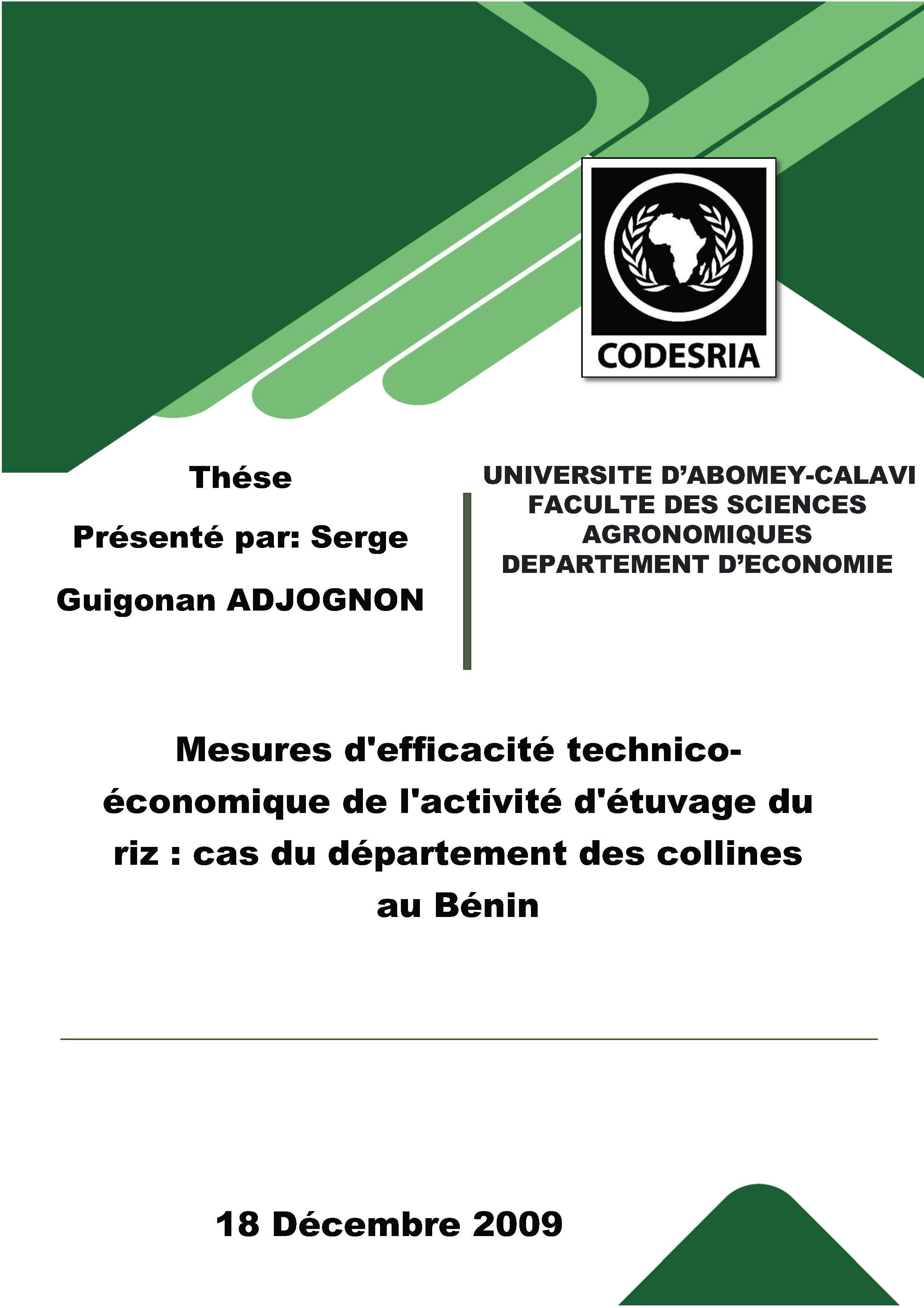Mesures d'efficacité technicoéconomique de l'activité d'étuvage du riz : cas du département des collines au Bénin
Keywords:
Riz, production, efficacité, femmes, étuvage du riz, efficacité économique, BéninSynopsis
As the principal food supply for almost half of the world’s population, rice is today a
fundamental pillar on which food security of many African countries, including
Benin, is based on. However, the development of this crop’s local production is
limited by its poor quality which accounts for its poor competition compare with
imported rice. From then on, greater attention is given to rice post-harvest
processing strategies in order to increase quality and therefore competitiveness of
rice locally produced in Benin.
As part of this framework, the present study was interested in the evaluation of the
efficiency of the women responsible for parboiling in the “Département des Collines”
in central Benin as well as the factors influencing this efficiency. For this purpose,
some panel data were collected on 102 women sampled in 20 villages throughout the
study area. To evaluate the levels of technical, allocative and economical efficiencies
of these women, the stochastic frontier production and cost function approach was
used. Afterwards, the predicted efficiency scores were regressed over the
determinants through a Tobit model to take into account the truncated character of
the dependant variable.
From the study’s results, it emerges that the average technical, allocative and
economical efficiency of all the women in rice parboiling in the zone studied are
respectively 59,16%, 62,09% and 36,98%; with every time, a greater proportion of
women with poor efficiency scores. This implies that the women of the Département
des Collines are not very efficient technically, allocatively and economically.
Important margins then still exist to substantially increase productivity and to reduce
costs in production factors of the rice parboiling operation. This would improve the
income of women involved in the rice’s post-harvest transformation system.
From the analysis of the efficiency’s determinants, it emanates that on top of other
socio-economical, institutional and technical factors, the use of the improved rice
parboiling technique as well as the use of improved stoves significantly enhance the
Downloads






